You're on the Young People Site
Dedicated to self-harm recovery, insight and support.
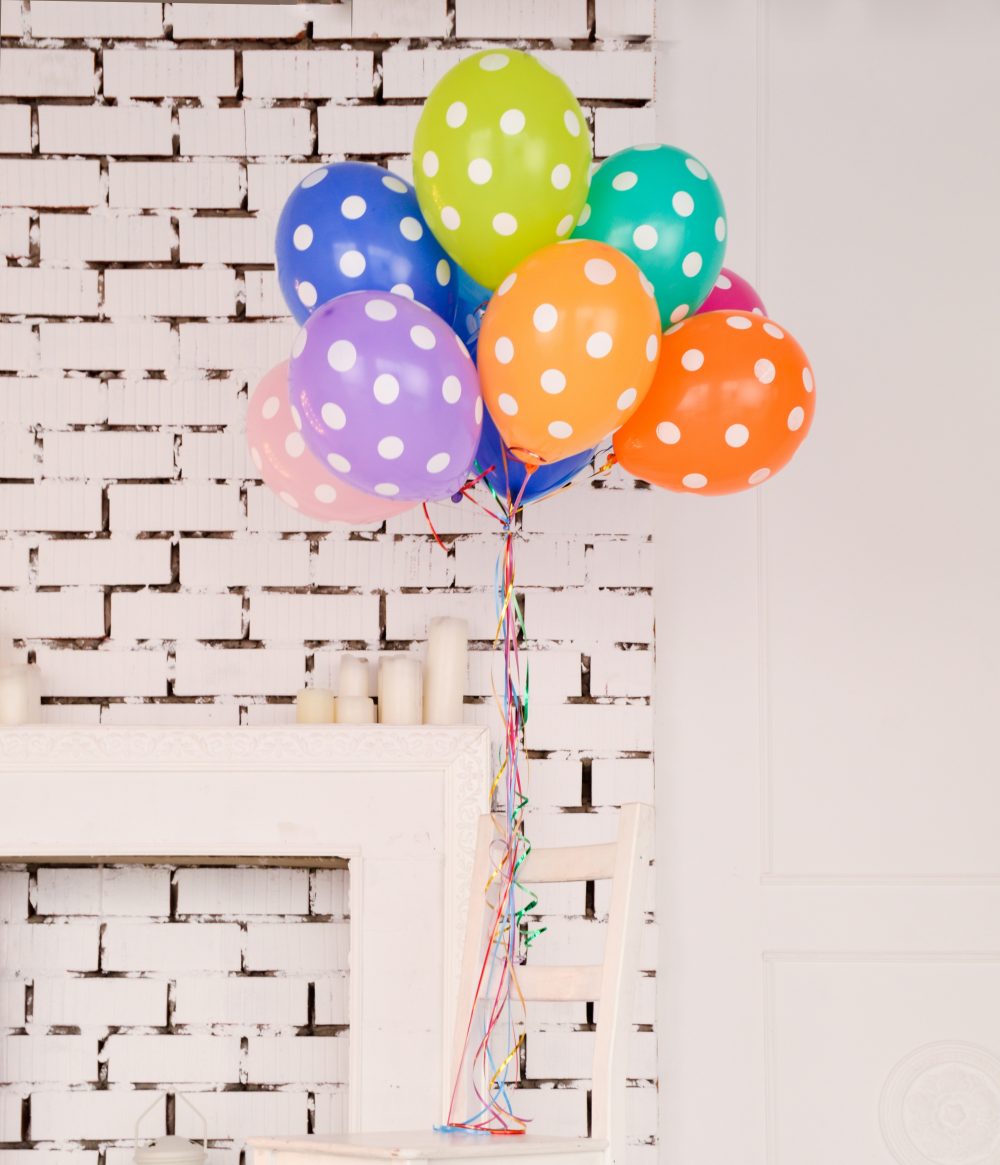
Welcome to our brand-new website! We are so excited to be sharing with you all the weeks and months of work we have been doing to try and get this right. The first thing that you may notice is that we now have three very specific areas for the main people that visit our site. This is so you can feel totally at home sharing any stories or questions you have, knowing that parents and professionals won’t see it. Please be aware if we are really worried about you we may need to pass this information on.
To post content and to see what other people have posted you must be logged in, you can do this by clicking the register button and filling in the form that follows.

Please give us honest information, we may need this in the future to help keep you safe.
We want you to feel at home here, we want to try and help you build a safe online community that helps you begin to share how you are feeling about your self-harm and meet other people who can help you in this journey. Sometimes we will comment on your posts, but overall, we want you to have the space to help and support each other where you can.
The site is broken down into different places for you to get the help and support you need we have our main chat space where you can upload appropriate pictures, questions and tell us your story. When you post on that page you get to choose your colour background, your font and picture so it feels more personal to you.
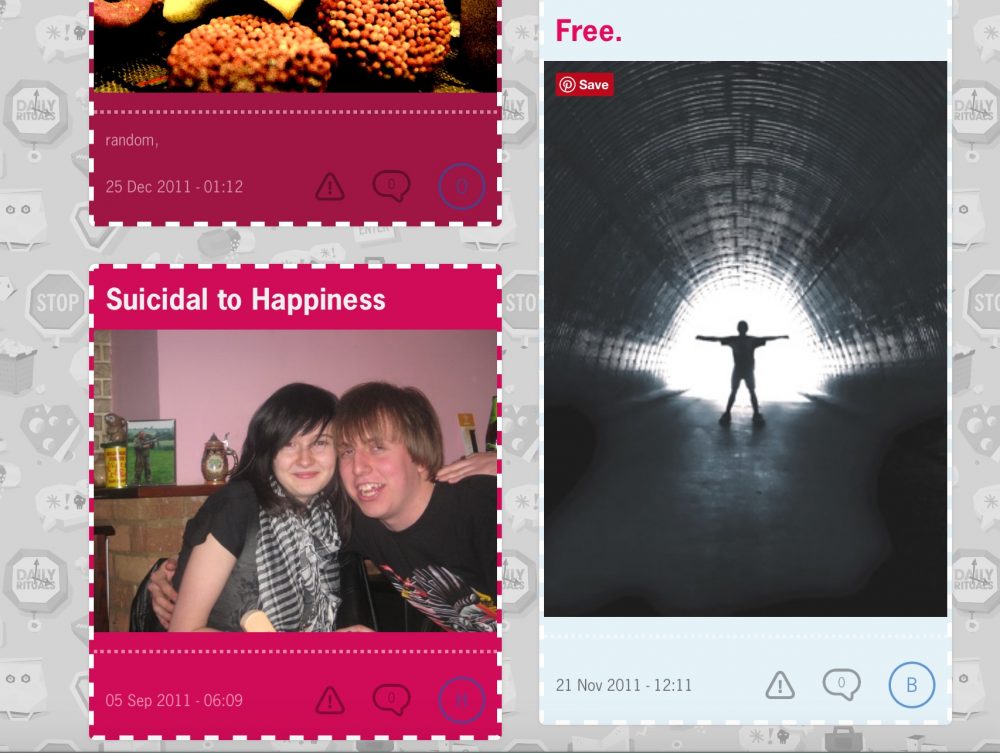
We want you to feel supported in your times of crisis and have somewhere to take your concerns and fears when you feel lost and alone. This main chat forum and space is for you to help and support one another. This will be monitored, please remember we are all about pro-recovery here so be sensitive and supportive to everyone needs.
We will also be hosting live chat sessions where we will look at a whole series of topics from anxiety to LGBTQ+ to depression and many more. These sessions will start on the 1st November 2017 at 7pm. They will run for approximately 30-40 minutes and will be held once a week on a Wednesday evening. These are completely informal and will be hosted in a chat room format. We would love you to come along when you can. You can find the links to these chat rooms and a little bit about what we will be discussing that week under the help button on the main page of our website.

Finally, when you are ready we have our weekly support group called Alumina, you can find information about this and sign up under the Alumina tab in the main menu. This is a more intentional form of support and we would love to welcome you when you feel ready.
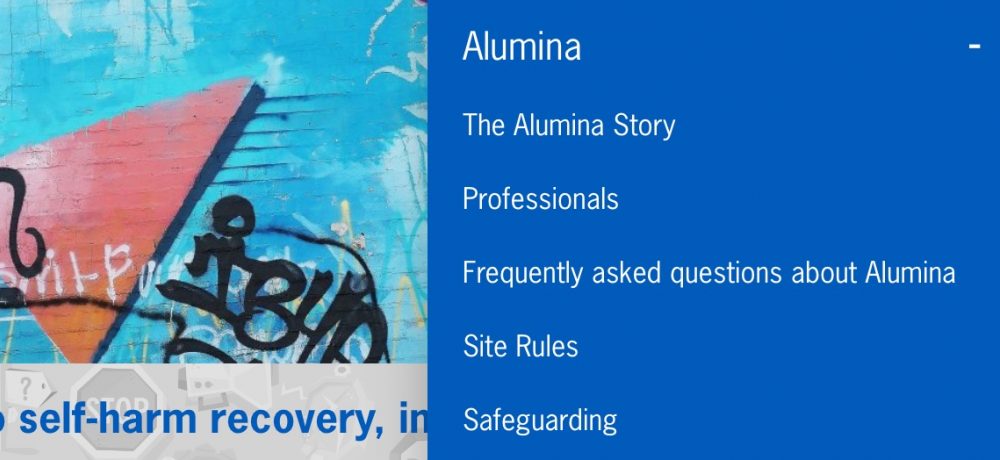
If you have any questions, concerns or suggestions please contact us at info@selfharm.co.uk and we will try and see if we can help. We really want you to feel supported in this journey and have the space to share your experience. Be sure to follow us on Instagram and like us on Facebook.
Love,
The SelfharmUK Team x
Lahna talks to us about Sexuality and Self-harm
Some useful links:
SelfharmUK (that's us!): selfharm.co.uk
Mermaids (Trans* charity): mermaids.org.uk
Albert Kennedy Trust (LGBTQ+ charity): akt.org.uk
Stonewall (LGBTQ+ charity): stonewall.org.uk
Mind (Mental Health Charity): mind.org.uk
Childline (Child Support Charity): childline.org.uk or 0800 1111 or app "For You"
Young Minds (Mental Health Charity): youngminds.org.uk or Parents Helpline 0808-802-5544
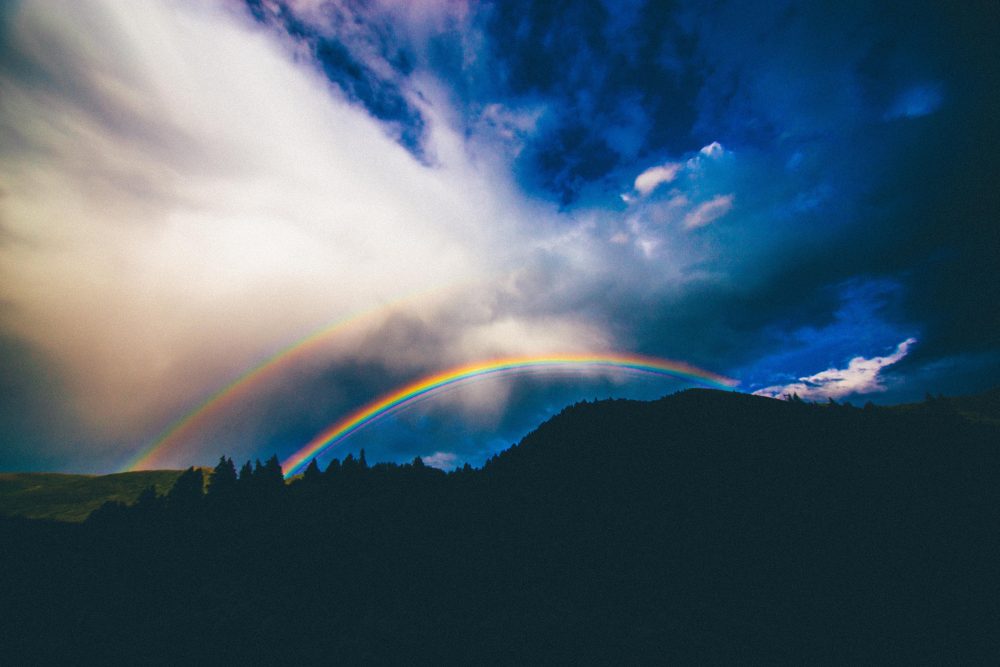
The Pride celebrations in London are over for another year, but coming out can still feel like a struggle. The blog post below was written by Lydia. She hopes you find it helpful.
Coming out for many people is hard. But not for everyone. My own experiences shone a light on how enlightening this experience and care free it can be. In the past month I have finally come out as bisexual.
Before it happened I was petrified, being bisexual was never something I was completely sure on. Liking someone of the same sex I had never denied the possibility but I had also never embraced it until it happened. My own experiences of coming out might be or have been extremely different from anyone else. Everyone is different that's how we're made and how we experiences life is also extremely different from one another.
Coming out for me felt like I was finally being able to be who I wanted to be and like who I wanted to like. I had decided years before I was going to wait until I found someone of the same sex before I came out as bisexual. This decision was made by myself so I could find someone who I liked and take it at my own pace. The decision was also made so I myself I knew I like the same sex more than as friends since it was something I had questioned. And it happened. I found her. And it was like a tsunami sweeping me away when it happened. It was the most liberating and freeing thing I could have ever experienced. But fear also began to consume me. I had never dated a girl before so what would everyone think? But I thought about it, a lot. And I came to realise that there's millions of people out there who identify themselves in the LGTBQI society. I wasn't alone in this and this wasn't uncommon thing to be going through. Telling my family was the easy bit, luckily for me they were accepting and weren't phased by me being with a girl. My friends, what can I say? They were great about it, confused and questioning where it had come from but supportive.
The impact coming out has had on my life has been incredibly positive. It's helped me overcome so many battles and issues and made me realise that it's okay to be myself. I've realised that the people who will talk are the people who don't understand and that's ok, that's not your fault, it's up to them to educate themselves. It also been a way of me accepting myself more and learning to love myself for who I am. Because I am a strong independent woman who falls in love with whoever I want to and I won't conform to anyone's expectations. I highly recommend for those still in question about coming out to do it. Because you in yourself will feel so much better for it.
To sum coming out in one word I'd use ‘empowering’.
You can check out Lydia's blog and vlogging links here.
You can also visit the Stonewall website for further support.
For more information about self-harm in LGBTQI young people, check out our Facts page.
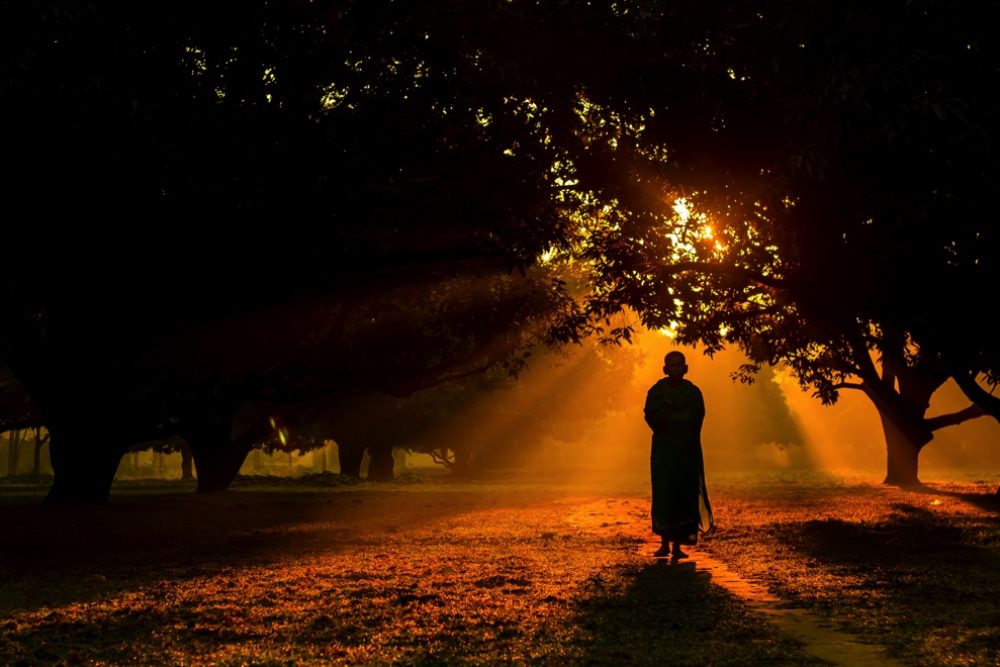
Oliver shares with us some of their own journey around finding peace with their mental health and identity. This is a personal story of transformation and whilst none of this may ring true for you, Oliver challenges us to think about our own recovery and how community and the support of others can bring about the change that we need in our own lives to heal. SelfharmUK is for those from all backgrounds and faith groups, this story is personal and in our sharing of this article our only hope is that you are challenged to find a community that works for you.
I grew up a pastors’ daughter on the outskirts of Birmingham, attending church religiously, so to speak, every Sunday. I enjoyed running around with my best friend Laura – who was also the daughter of a pastor – as opposed to actually participating in the service, although I did have a handful of favourite hymns which I would frequently request my father to play each week. Another highlight of mine was the continuous handfuls of candy I would convince the elderly churchgoers to give me; I had a particularly convincing smile.
My love of attending church came to an end gradually as I got older. Running around was no longer acceptable and my convincing smile had slowly withered away. I began losing interest and after 10 years of working in the same job my dad resigned as head of the church. We moved out of the vicarage and began attending a different church slightly further away – I still don’t know for certain why we stopped attending our original place of worship, although I have the suspicion tensions were high after we left and perhaps some attendees of the church saw us leaving as giving up on our faith.
As a family we began a new leg of our worship at a church run by very close friends. A new start had sparked my interest once again, however a decline in my mental health had meant that burst of intrigue didn’t last exceptionally long. As depression sank in I started to find every aspect of my life mundane and uninteresting, including spiritually. By this time I was 11 and had stopped attending church altogether. Not particularly long after this I became isolated and also began to self-harm.
Child & Adolescent Mental Health Service (CAMHS) took me on as a patient in the year 2012 due to my mums’ persistence to get me medical help – which was predominantly driven by her faith, words of solidarity she took from the Bible, and the network my parents had built up around them over many years of hard work within the Christian community. I received frequent therapy sessions plus plenty of support from friends and family, but their efforts went unnoticed and I continued to deteriorate. My self-harm persisted, I attempted suicide and was starving myself.
After receiving several diagnoses including depression, anxiety, suicidal tendencies and EDNOS (Eating Disoders Not Otherwise Specified), I was hospitalised on the 29th of May 2013, after being in and out of A&E several times. I vividly remember my mother getting the call the night before, stating that a bed had been made available and that I would be a full-time in patient by the next day.
The 8am drive to the hospital was bleak, literally and emotionally. There was a light drizzle of rain and the fog had begun to stagnate, as if it would never lift. To say there was an air of pathetic fallacy that morning is a gross understatement. Along with the macabre shadow following me around, I too felt an absence of God, in all its forms. An absence of communal support. An absence of faith. These things shaped my childhood and now had dwindled away. It felt as if the life I was living were completely separate from my younger self. All trace of who I used to be had been destroyed in the face of depression, also dragging with it a previously overwhelming sense of trust in my parents and love for my religious community.
Those 8 months in hospital were the centre point of one of the most transformative times in my life, and still today impacts who I am greatly – luckily for me the treatment was a success for the most part and it sculpted me in a positive manner.
I was eventually discharged on the 13th of December 2013, yet there was still a long road of healing ahead. I was put under the home visiting team working for CAMHS who, for the first few weeks, would visit my house each day to not only monitor my weight and blood pressure, but also my scars, if there were any new ones, and how my emotional stability was faring.
No interest in the spiritual life had showed itself again as of yet, for all my energy and time was being spent on merely trying to function once more in a society I had been isolated from for the best part of a year. This remained the case for some time and while a lot of progress was being made in the realm of my mental health, my spiritual health continued to be malnourished and uninspired. (Also during this time I came out as genderqueer, otherwise known by its more socially acceptable term of ‘non-binary’, which also aided in my positive progression with my mental health. I would go into this further but I feel it would best to leave it for its own article).
It wasn’t until the dawn of 2016 that I set about exploring afresh the religious aspect of my life – or lack of, for that matter. This led me to exploring Buddhism more in-depth, and took me to my local Triratna Buddhist centre. Entering the building I felt something which had been absent for most of my life; a spiritual community in which I had a place. A spiritually stimulating community where my gender expression and sexuality did not deem me unworthy, but where my actions and the peace or hatred I contributed to the world defined me. From then on I attended the centre every Thursday evening where groups of up to 60 people would meditate and have discussions on different Buddhist teachings.
I began attending the centre in May this year, and by July I had been discharged from CAMHS after being a patient of theirs for 4 years. The absence of CAMHS threw me off kilter very briefly for a few weeks, which resulted in me taking that time off from the Buddhist centre to fully assess the direction I wanted my religious practice to go in. As I am writing this it is getting towards the end of September and I have been attending the centre again since the beginning of this month and now I can truly see how deprived and dissatisfactory my life is without Buddhism.
I feel I can truly now comprehend the importance of a spiritual or religious community in aiding positive mental states.
On that note I feel it is time to bring this article to a close, but not quite yet. I would like to leave you with a warning not to take my words from a subjective viewpoint and believe I am saying that Buddhism is the only way to connect spiritually. Buddhism is not the only way, and that is definitely not the message I would like people to take from this. We all connect to various communities differently, and what I am trying to project as best I can, is that we should not give up on finding the right place for us if the first one does not work out how we would have liked. There is a place for everyone to find religious inspiration and encouragement, we just have to find it. This is my attempt at motivating you to find it.
Oliver Fitzsimmons, aged 16
Image courtersy of Jubair1985
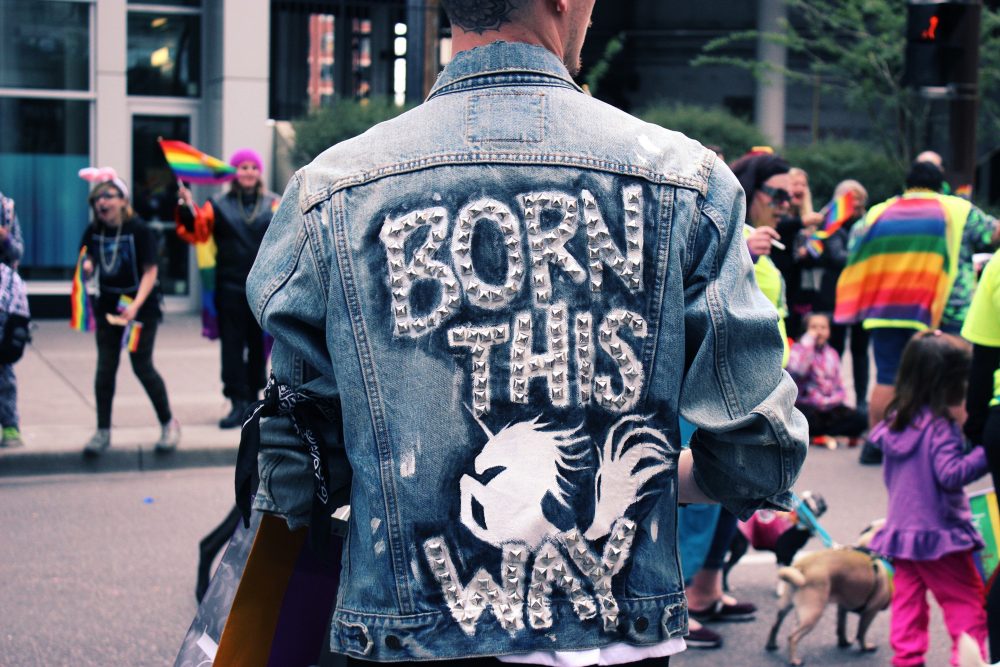
In this article SelfharmUK Project Manager Ruth Ayres sits down to talk to Oliver and Lewis about their gender identity and self-harm
SHUK: Oliver, what age did you begin self-harming?
O: I started at 11 years old, I have always struggled with talking about my emotions and I remember the exact moment my eating disorder started. I was in Paris on a school trip and my boyfriend at the time was talking to a friend and said my thighs were really fat. I look back now astonished, I was a size 10 at the time. I was nowhere near fat. But that comment had a huge effect on me. I can remember everything about that moment, from what I was wearing to the exact place we were in Paris.
SHUK: How did you self-harm?
O: Lots of different ways, I was diagnosed with an eating disorder when I was 12, this was a lot to do with stopping my body from developing as a girl. I didn’t want that to happen. I was hospitalised for 8 months, from May to December 2013. I was force fed in that time. Not by way of a tube, but I was told, I could eat a meal or drink a high calorie drink, which I have to say tasted disgusting. I picked the drink though, because at the time the thought of chewing was awful for me.
SHUK: Really why so?
O: I don’t know; I just couldn’t cope with it.
SHUK: Were you self-harming in other ways?
O: Yeah I was cutting and I tried to take my own life, on 2 occasions.
SHUK: Jo, (Oliver’s mum) how was it for you when you first realised Oliver was self-harming?
J: Awful, I felt like a massive failure and I was constantly asking the question why couldn’t Oliver talk to us about their feelings. Given all the jobs I have done, often in counselling and supporting young people, I felt like I had massively let Oliver down. I had to however begin to think about how we as a family helped Oliver to get better.
SHUK: What did you want to do?
J: A combination of wrap Oliver up in cotton wool and scream at the whole world. I wanted to stop them self-harming and essentially make everything better.
SHUK: Did you at this stage have any idea why?
J: Not at all, Oliver had struggled with their transition to high school and we as parents assumed that this was the reason for their self-harm.
SHUK: Oliver, can you talk to me about your gender identity?
O: I feel totally fluid in my gender at the moment, and I am not sure if I want to fully transition my body from female to male. I am living life as me, non-defined by my gender. I would describe myself as Agender – living without gender rather than transgender.
SHUK: Do you think your self-harm was linked to your gender identity?
O: Yes; I felt a huge lack of community and acceptance, community is really important and I now feel a huge sense of belonging to the queer community (Lesbian, Gay, Bisexual, Transgender). There is a total lack of education around gender identity and we are still seen as outcasts I guess. I mean just recently 50 people were killed in Orlando, in place where they should have been safe. I think people who are exploring gender identity feel unable to come out for fear of not being accepted and loved, or killed. My self-harm was about controlling my emotions that I didn’t understand or couldn’t talk about, these emotions were linked to my gender identity.
Oliver and I had a long discussion about where they were now and they were able to express very freely the peace they now feel as a result of being agender. Oliver was clear with me that there needed to be more education around being agender, and they became incredibly passionate about the fact that people had died and the world needed educating. However, what is totally evident and what they do know is that they feel more comfortable in their own skin than ever before. They feel much more confident in expressing themselves. Oliver feels there is a sense of them being able to understand themselves and not conforming.
SHUK asked Jo what advice she would give to parents if their child is self-harming?
J: Don’t panic, talk to someone outside of the family for support and try in a very gentle non- threatening way to open up conversations with your children about self-harm.
SHUK: Oliver, if you could go back 12 months what advice would you give yourself?
O: I would tell myself to not try and run away from my community and I would tell myself to accept that this is who I am. I would try not to be anything other than myself. I would also remind myself that being queer is empowering, not strange. It is an escape from a heteronormative society, which is something I’ve always searched for, and that one day I will finally be free to be as queer and loud as I want.
Since coming out Oliver has not self-harmed for 18 months and is doing extremely well, it is obvious from my time with them that they are at peace. Oliver is able to speak honestly and freely about who they are and I have to say they are a very inspiring person to be around.
Lewis Hancox is YouTube vlogger and up and coming comedy writer, with many exciting things in the firing line, he also happens to be transgender. Lewis took part in a channel 4 programme in 2011 called My Transsexual Summer, which followed 7 people at different stages of their transition. Lewis has now completed his surgery and feels far more at peace than ever living life as a man. Lewis has always identified as a heterosexual male and for him the loneliness of living as a girl was incredibly tough.
Lewis gave me some of his time over coffee one afternoon and I was able to ask him a few questions about transgender young people, suicide and self-harm. Here is what he had to say.
SHUK: Was self-harm anything that ever you struggled with, by this I mean any area of self-harm from cutting to self-poisoning to eating disorders?
L: Well actually I was going to answer no then, but I guess you’re right, eating disorders are part of self-harm. I developed an eating disorder when I was in high school and this was due to the changes I was seeing in my body, I was desperate to not go through puberty as a girl and wanted to stop the development of my body parts as much as possible. I was diagnosed with anorexia and I knew there was something else underlying this. If I’d have known about being transgender back then this would have definitely helped, I would have felt like there was a light at the end of the tunnel.
SHUK: Were you ever hospitalised?
L: Yeah I was, due to my periods stopping they needed to be sure that my vital organs were not shutting down. I was in for a night, they ran some tests and I was discharged. I was then referred to a counsellor.
SHUK: How can we help transgender young people around self-harm?
L: I think education on the subject is the key, when I saw my counsellor after being discharged form hospital my mum mentioned to her that when I was younger I never wanted to wear girls; clothes or be called “she”. The counsellor dismissed this and said “oh no that’s nothing, lots of young children feel that way.” She put my eating disorder down to my parents splitting up. I know that if I’d have had the space to talk about my confusion around my gender it would have been different. It’s about people being educated, especially professionals.
SHUK: Why do you think self-harm and suicide is such a massive issue in the Trans community?
L: I think there is a few reasons really, I think that people feel isolated and unaccepted and even when they have come to terms with being trans themselves they often feel isolated and rejected by their family and friends, who perhaps don’t understand. I also think a huge issue is the waiting times for people to have access to testosterone and surgery. I was rejected for my surgery in St. Helens and I waited two years for testosterone. This means that even when people have made their peace with being trans, they still feel out of control while they wait for the right support to start their transition. Self-harm is something that they can control and I think this is why it is such a big issue. I have trans friends who have self-harmed and also attempted to take their own life.
SHUK: If you could go back to in time to your younger self, what would you say?
L: I would reassure myself that I am going to live a perfectly happy life once I have transitioned and that my body isn’t the be all and end all. I would tell myself to not put my life on hold and focus on my ambitions and things that I can work towards. I feel like I lost a good few years of my life when all I could focus on was my transition and I guess a part of me regrets that now.
Gender continues to be a complex, challenging and difficult subject for many young people, gender identity is a concept that needs to be talked about, celebrated and accepted.
“The secret of change is to focus all your energy, not on fighting the old, but on building the new.” Socrates
